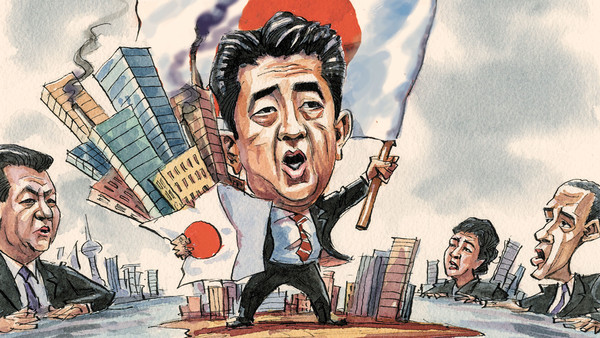The headlines shout that Japan is back. Shinzo Abe has returned the country to centre stage after more than a decade in the wings. This week’s turbulence aside, the stock market has boomed, consumers have been spending and growth looks like picking up. Abroad, Japan is commanding attention. There are three things to say about this reversal: two are mostly positive and the third seriously negative.
When the Japanese prime minister tips up at next month’s meeting of the Group of Eight advanced industrial nations, it is a fair bet his fellow summiteers will want to get to know him. The same could not have been said of his recent predecessors.
The prime minister’s office has had a fast revolving door. Between 2006 and Mr Abe’s election victory in 2012 there were as many occupants as years. Other world leaders would shake hands with their Japanese counterpart in the near certain knowledge that he would be gone before their next big gathering. America’s Barack Obama was said to be especially irritated by the time wasted in these fleeting encounters.
Mr Abe, of course, was one of those who passed through the revolving door – presiding over a failed administration between 2006 and 2007. His political prospects now, however, are better than any since Junichiro Koizumi’s premiership in the opening years of the century.
Mr Abe’s ruling Liberal Democratic party faces elections to the upper house in July, but if the polls are any guide it is heading for a comfortable majority. Barring any accidents, that would leave Mr Abe with a clear run until the next poll for the lower house in 2017. (more…)
Archives of “turbulence” tag
rssGreek crisis clouds EU summit
 The fiscal emergency in Greece and the turbulence in debt markets are threatening to overshadow this week’s EU summit on business competitiveness. The problem poses a leadership test for Herman Van Rompuy, the EU’s first permanent president, who called the meeting. Greece’s debt crisis, and the risk of eurozone contagion, are not on the summit’s official agenda, but leaders fear the impact on financial markets if the summit does not address the worst crisis to strike European monetary union since its launch in 1999.
The fiscal emergency in Greece and the turbulence in debt markets are threatening to overshadow this week’s EU summit on business competitiveness. The problem poses a leadership test for Herman Van Rompuy, the EU’s first permanent president, who called the meeting. Greece’s debt crisis, and the risk of eurozone contagion, are not on the summit’s official agenda, but leaders fear the impact on financial markets if the summit does not address the worst crisis to strike European monetary union since its launch in 1999.

